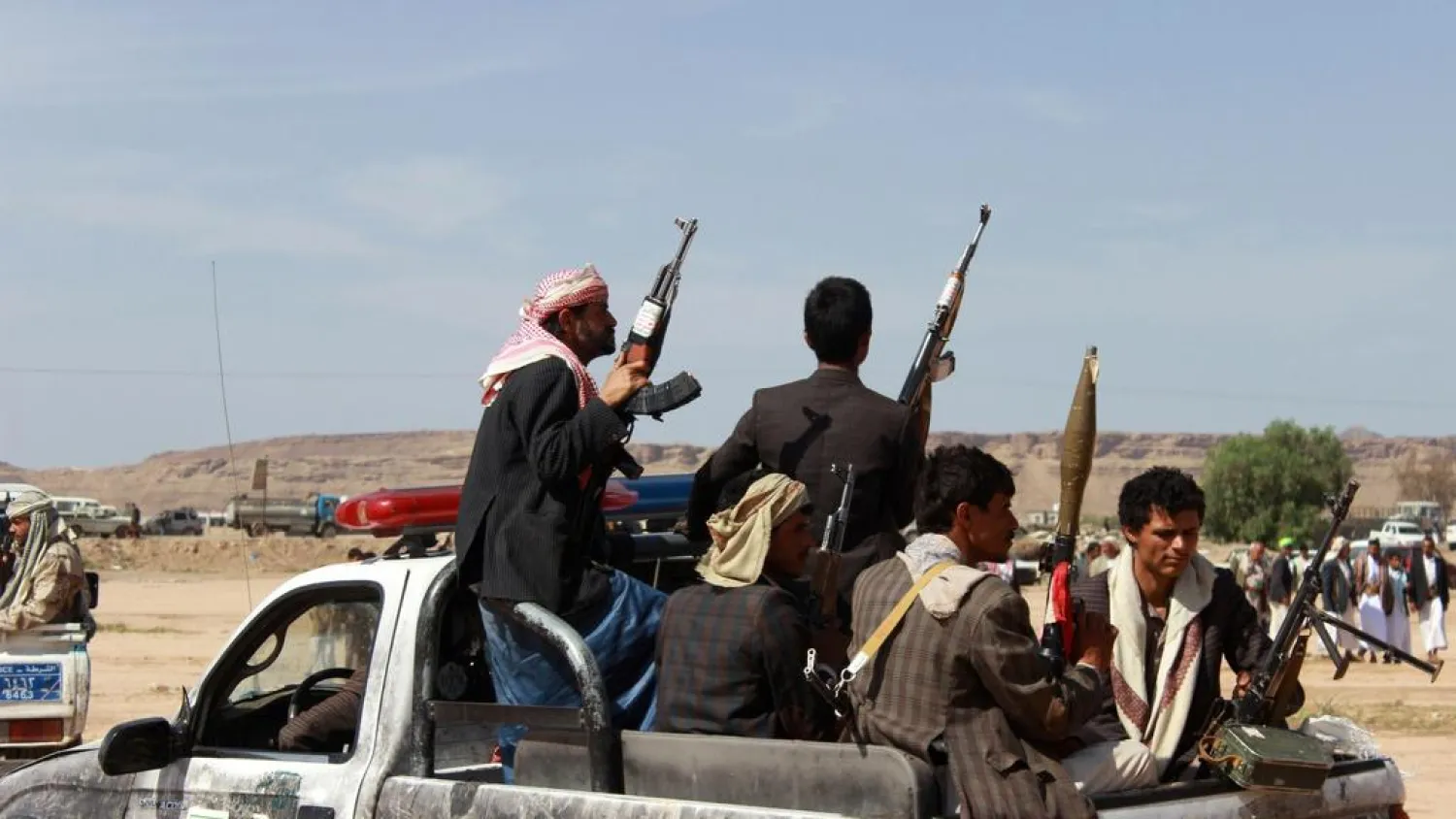Tribal sources in areas surrounding Sanaa revealed that accelerated movements are taking place on the ground, in coordination with many tribes in Tihama and some sheikhs in Sanaa who are loyal to former President Ali Abdullah Saleh, to arrange a mechanism to progress militarily and storm Sanaa with the support of the national army.
“These movements come in light with the repression and killings carried out by the Houthi militias in Sanaa after the city was divided into security squares to monitor any movement of civilians and prevent any revolution after the assassination of President Saleh,” several sheikhs told Asharq Al-Awsat.
They added that work was underway to arrange the ranks before the occurrence of any military action that needs the support of coalition forces.
A number of sheikhs in Sanaa joined the Houthi militias under the force of arms to ensure their safety and prevent the execution of their families after militias launched a large-scale campaign of arrests, killing large numbers of leaders and destroying their homes for refusing to cooperate and obey, tribal sheikhs explained to Asharq Al-Awsat.
This move was preceded by the calls of leaders in the legitimate government, who rely on the strong reaction of these tribes in expelling of the Houthi militias with the support of the army and the Arab coalition forces, especially that these tribes have a historical experience in clearing invaders from the city.
According to tribal sheikhs, they need military support as they need to be provided with various types of weapons, enabling them to quickly enter the center of the capital.
Sheikh Mohammad Abdulaziz al-Shalif, a sheikh of the Nahm tribe, told Asharq Al-Awsat that the bloody situation in the capital, Sana'a, is caused by the Iranian-backed Houthi militias and has created panic among people inside the city.
The women, who have been subjected to investigation and arrest, especially after the protests they have carried out on Wednesday, were subjected to repression, beatings, and humiliation.
Many homes were also bombed. "The situation is now critical in Sana'a and the capital has never witnessed such situation,” Shalif stressed.









